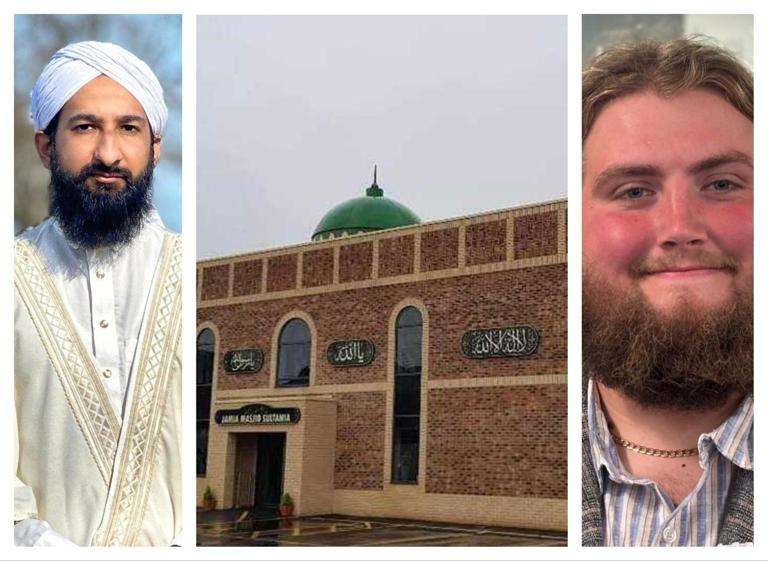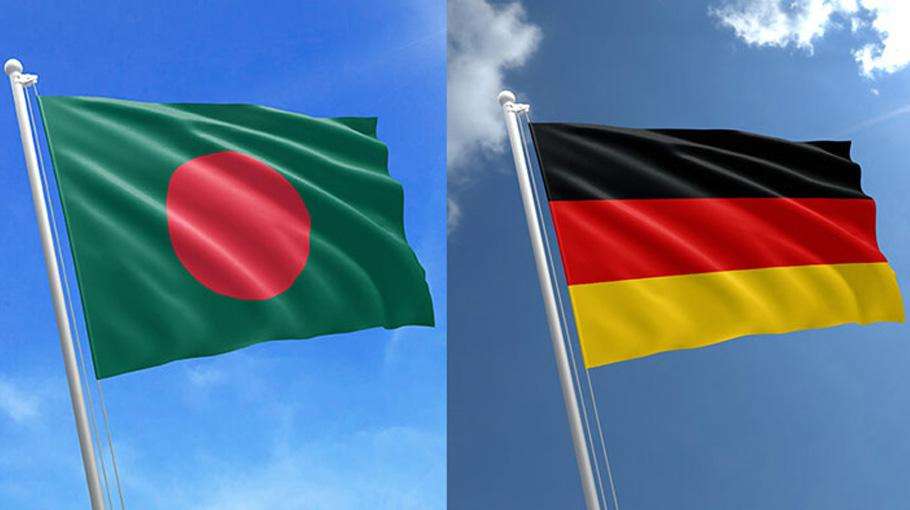The Bangladesh government should start constructive dialogue with stakeholders concerned to come out of the present crisis and restore peace and stability in the country.
German Ambassador to Bangladesh Achim Tröster has expressed this view while speaking at the annual general meeting (AGM) of the Bangladesh German Chamber of Commerce and Industry (BGCCI) at the city hotel on Wednesday.
Germany has expressed deep concern at the loss of lives and the persons injured in the recent student movement over quota issue in the government jobs and demanded an impartial investigation into the incident to bring the real culprits to the book.
Laying emphasis on the political reconciliation, Achim Tröster has expressed the hope that political parties of Bangladesh should engage in constructive dialogue to strengthen democracy.
As Germany considers Bangladesh as a development partner, Achim Tröster clearly said that Germany does not have geopolitical or strategical interest like some regional or western powers have.
Achim Tröster also said the political parties should understand the mindset of students and the youth of Bangladesh as the demographic dividend shows that a substantial portion of the population belong to that group.
He said Germany expects that rule of law, human rights and democracy should be ensured in Bangladesh in line with western values.
While mentioning his meeting with Prime Minister of Bangladesh Sheikh Hasina at her residence on Tuesday, Achim Tröster said that he has communicated the position of his country to the Bangladesh government.
He also said that Bangladesh will have to ensure human rights, rule of law, sound labour and environment standards and good governance to enjoy trade privileges in the Germany market in the days to come.
Germany is the largest trading partner of Bangladesh in Europe and the second largest globally. Readymade garment exports to Germany stood at 5.95 billion US dollars in FY20-21 as against 6.97 billion earning from the USA market.
By 2026, Bangladesh will be upgraded to a middle income country and is likely to experience several challenges including high tariffs in the EU markets.
However, Bangladeshi exporters may get trade privileges including GSP plus up to 2029 in Germany, provided Bangladeshi exporters ensure human rights, rule of law, sound labour and environment standards and good governance.
On June 11th, 2021, the German parliament passed the Supply Chain Due Diligence Act (LkSG) – also known as the Supply Chain Act. The new German Supply Chain Act, which will come into force on January 1, 2023, primarily focuses on human rights issues, but also includes environmental considerations.
President of BGCCI M Maksud, Senior Vice President Mohammad Ershad Hussain and Treasurer Adnan Md Iqbal, among others, spoke on the occasion.
Meanwhile, UN Secretary-General António Guterres has reiterated his call for all acts of violence to be investigated promptly, transparently, and impartially, and for those responsible to be held to account.
He said they have taken note of the statements by the Bangladesh authorities that UN-marked vehicles are no longer being deployed within the country.
“We remind and reiterate that UN troop- and police-contributing countries are to use UN insignia and equipment marked with the UN insignia only when they are performing mandated tasks as UN peacekeepers in the context of their deployment within a UN peacekeeping operation,” said Stéphane Dujarric, spokesman for the UN Secretary-General on July 29.
The spokesman said they continue to raise their concerns about the situation in the country with relevant authorities, both in Dhaka, and in New York, and they count on Bangladesh to respect and uphold human rights, including as a top troop contributing country to United Nations peacekeeping missions.
Giving an update on Bangladesh, he said the secretary-general remains deeply concerned about the situation in Bangladesh.
He noted reports of the resumption of student protests and reiterated his call for calm and restraint.
The Secretary-General is concerned about reported mass arrests of thousands of young people and political opposition in connection with the current student movement.
“He underscores the importance of due process and the right to freedom of expression and the right to peaceful assembly,” said the spokesman.
The UN chief is also alarmed by emerging reports about the excessive use of force by security forces and credible evidence of human rights violations.
Meanwhile, the European Union (EU) has conveyed its grave concern to Bangladesh at the announcement of a "shoot on sight" policy and "unlawful killings" perpetrated in recent days by the authorities in Bangladesh.
At the sidelines of the ASEAN Regional Forum Ministerial Meeting in Laos on 27 July, the High Representative of the EU, Josep Borrell Fontelles, conveyed it to the representative of Bangladesh and former Foreign Minister, Dr. AK Abdul Momen, MP.
"I am also deeply concerned by the killings of law enforcement officers, violence, torture, mass arrests and damage to property that have taken place," said the EU High Representative in a statement.
These acts must be thoroughly investigated and those responsible brought to justice, Fontelles, who is also vice-president of the European Commission, said.
"There must be full accountability for the numerous instances of use of excessive and lethal force by the law enforcement authorities against protesters and others, including journalists and young children," said the EU High Representative.
"The thousands arrested must receive due process. We will closely follow the actions of the authorities in the context of this crisis and, with the fundamentals of EU-Bangladesh relations in mind, expect all human rights to be fully respected," he said.
Meanwhile, the European Union said on Wednesday (31 July) it postponed negotiations with Bangladesh on a new cooperation agreement after criticism of Dhaka's response to contain deadly protests that killed at least 150 people this month.
The cooperation pact seeks to enhance trade, economic and developmental relations between Bangladesh and the EU, which is the main trading partner for the South Asian country, accounting for 20.7% of Bangladesh's trade in 2023.
EU Foreign Policy Chief Josep Borrell last week criticised a reported "shoot on sight policy" in Bangladesh, killings "perpetrated by the authorities" as well as killings of law enforcement officers, mass arrests and damage to property.
Bangladesh Prime Minister Sheikh Hasina's government has denied any live rounds were fired, but hospital sources said the injured as well as dead bore wounds from bullets and shotgun pellets.
"In light of the prevailing situation, the first round of negotiations on the Partnership and Cooperation Agreement envisaged for September has been postponed with no later date fixed as yet," Nabila Massrali, the EU's foreign affairs spokesperson, said in an email to Reuters.
Bangladesh, however, said the talks had been delayed to November as they clashed with the United Nations General Assembly session that begins on Sept. 10. The EU did not immediately comment on Bangladesh's response.
"This delay was due to the UN General Assembly and was decided well before the recent violence," said Uttam Kumar Karmaker, an additional secretary at the Economic Relations Division of Bangladesh's finance ministry.
A delay in talks could affect EU support for Bangladesh at a time when it is grappling with economic struggles, soaring inflation, high youth unemployment, and dipping foreign exchange reserves.
The high cost of living sparked deadly demonstrations ahead of January's national elections, in which Hasina won a fourth straight term in a vote boycotted by the main opposition party.
The recent protests led by students were against controversial quotas in government jobs and quickly spiralled into violence, killing 150 people, injuring thousands and shutting the country for days as curfew was imposed, the army called out and telecoms disrupted.
The restrictions were eased last week as students stopped the protests after the Supreme Court scrapped most of the quotas.
Hasina and opposition parties have both blamed each other for the violence, with the main opposition Bangladesh Nationalist Party (BNP) accusing Hasina of becoming increasingly authoritative in recent years.

_8.jpg)

_7.jpg)




.svg)

